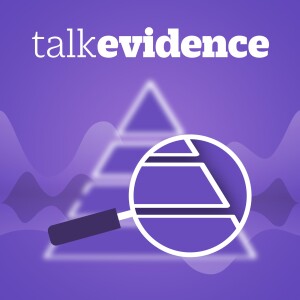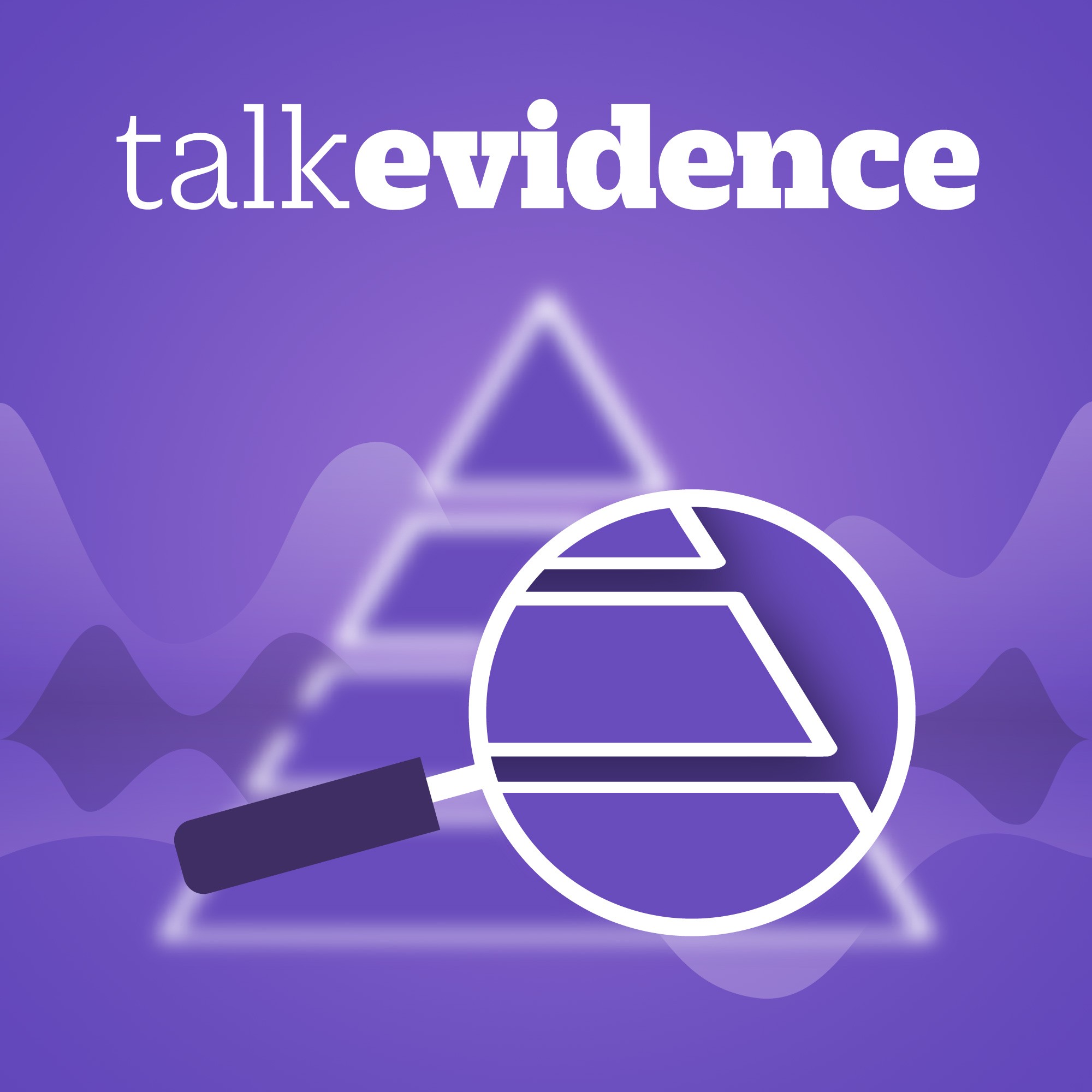Episodes

Thursday Mar 30, 2023
Talk Evidence - automatic approval, evidence apps, and pay for performance data
Thursday Mar 30, 2023
Thursday Mar 30, 2023
In this month’s Talk Evidence, Helen Macdonald, Juan Franco and Joseph Ross are back to talk us through some of the latest research, They’ll talk about pay-for-perfomance schemes, and whether the data they routinely collect is measuring outcomes or tickboxes. They’ll also talk about a new analysis published on bmj.com which suggests ways in which that data could be better. We’re also by Huseyin Naci, associate professor of health policy at the London School of Economics and Political Science, who will tell us about proposed changes to drug regulation in the UK - and we discuss research which has linked speedier regulatory approval to more adverse advents in post marketing studies. Finally, we talk about point of care apps. The availability of medical information in the clinic has changed practice, but how good is that information? We hear about research which has evaluated those point of care apps (including BMJ’s Best Practice app) and rates them against different criteria. Reading list Estimated impact from the withdrawal of primary care financial incentives on selected indicators of quality of care in Scotland https://www.bmj.com/content/380/bmj-2022-072098 How can we improve the quality of data collected in general practice? https://www.bmj.com/content/380/bmj-2022-071950# UK to give “near automatic sign off” for treatments approved by “trusted” regulators https://www.bmj.com/content/380/bmj.p633 Smartphone apps for point-of-care information summaries
https://ebm.bmj.com/content/early/2023/03/14/bmjebm-2022-112146

Friday Feb 24, 2023
Talk Evidence - masks, chronic pain, and baby milk formulae claims
Friday Feb 24, 2023
Friday Feb 24, 2023
In this episode of Talk Evidence, Helen Macdonald is joined by Juan Franco and Joe Ross, to bring you the newest evidence in The BMJ. First, chronic pain. As prescribers move away from opioids, Juan finds an overview of systematic reviews asking whether anti-depressants might help. Joe finds new research on the link between six healthy lifestyle markers and cognitive decline. Helen looks at a trial to reduce prescribing among older people with suspected urinary tract infection or UTI. Juan has a nuanced take on the updated evidence on masks to reduce the spread of respiratory viruses. Finally, an international group of researchers traced the health claims made about infant formula milk back to the evidence or lack of it Reading list: Efficacy, safety, and tolerability of antidepressants for pain in adults https://www.bmj.com/content/380/bmj-2022-072415 Association between healthy lifestyle and memory decline in older adults https://www.bmj.com/content/380/bmj-2022-072691 Effect of a multifaceted antibiotic stewardship intervention to improve antibiotic prescribing for suspected urinary tract infections in frail older adults https://www.bmj.com/content/380/bmj-2022-072319 Physical interventions to interrupt or reduce the spread of respiratory viruses https://www.cochranelibrary.com/cdsr/doi/10.1002/14651858.CD006207.pub6/full Health and nutrition claims for infant formula
https://www.bmj.com/content/380/bmj-2022-071075

Friday Jan 27, 2023
Talk Evidence - excess deaths, the ONS, and the healthcare crisis
Friday Jan 27, 2023
Friday Jan 27, 2023
In this week's episode, we're focusing on covid and the ongoing crisis in the NHS. Helen Macdonald, Juan Franco and Joseph Ross cast their evidence seeking eyes over research into outcomes as well as the workload of doctors. Firstly, Joe tells us about a new big data study into longer term outcomes after mild covid-19, how those ongoing symptoms relate to long covid, and how often they resolve themselves. Juan looks back to his homeland to see what Argentina which was very early to offer children vaccinations against covid-19. He tells us how a new study design can help understand how effective different combinations of vaccines were. Joe has a Danish registry paper, which links people's employment status after a MI, explains how that gives us an insight into morbidity following that event. Helen looks at a new analysis which outlines the concept of "time needed to treat" - a measure of how much time it would take a clinician to actually carry out a guideline - and you'd be surprised how much GP time would be swallowed by a "brief" intervention to reduce inactivity in their patients. Finally, the data on excess mortality in the UK has been up for debate recently - our health minister calling into question the Office of National Statistic's data. We hear from Nazrul Islam, Associate professor of medical statistics, advisor to the ONS and BMJ research editor, who has some bad news for him. Reading list: Long covid outcomes at one year after mild SARS-CoV-2 infection https://www.bmj.com/content/380/bmj-2022-072529 Effectiveness of mRNA-1273, BNT162b2, and BBIBP-CorV vaccines against infection and mortality in children in Argentina, during predominance of delta and omicron covid-19 variants https://www.bmj.com/content/379/bmj-2022-073070 Guidelines should consider clinicians’ time needed to treat https://www.bmj.com/content/380/bmj-2022-072953 Expanding the measurement of overdiagnosis in the context of disease precursors and risk factors https://ebm.bmj.com/content/early/2023/01/10/bmjebm-2022-112117 Excess deaths associated with covid-19 pandemic in 2020
https://www.bmj.com/content/373/bmj.n1137.abstract

Wednesday Dec 21, 2022
Talking evidence at Christmas
Wednesday Dec 21, 2022
Wednesday Dec 21, 2022
It's almost time for the Christmas edition of the BMJ to hit your doormats, and in this festive edition of Talk Evidence we're going to be talking Christmas research. Joining Helen and Juan, we have Tim Feeney, BMJ research editor and researcher into Surgical outcomes at Boston University.
In this episode we'll be hearing about the health of footballers, and if a career in the sport predisposes Swedish players to substance use disorders. We'll hear about the performance of BMJ’s editors, when it comes to assessing the impact of a paper. We'll find out if AI algorithms can pass UK radiology exams, misinformation and a belief that everything causes cancer, and finally, some tips from BMJ’s statisticians to set the world right

Friday Dec 02, 2022
Talk Evidence - endometriosis, falling, and better EBM
Friday Dec 02, 2022
Friday Dec 02, 2022
In this month's episode, Helen Juan and Joe delve into the clinical - with a new review of endometriosis, and why the difficulty in diagnosis has lead to a dearth of evidence and attention on the condition. Joe tells us about a risk prediction tool that could be useful in helping to mitigate some of the problems of antihypertensive treatments. We're also having a geek out about a group of papers we've published lately, on how well evidence is created, maintained, and diseminated. Reading list; Development and external validation of a risk prediction model for falls in patients with an indication for antihypertensive treatment: retrospective cohort study https://www.bmj.com/content/379/bmj-2022-070918 Pathophysiology, diagnosis, and management of endometriosis https://www.bmj.com/content/379/bmj-2022-070750 Effective knowledge mobilisation: creating environments for quick generation, dissemination, and use of evidence https://www.bmj.com/content/379/bmj-2022-070195 Consistency of covid-19 trial preprints with published reports and impact for decision making: retrospective review https://bmjmedicine.bmj.com/content/1/1/e000309 Changing patterns in reporting and sharing of review data in systematic reviews with meta-analysis of the effects of interventions: a meta-research study from the REPRISE project
https://www.medrxiv.org/content/10.1101/2022.04.11.22273688v2

Wednesday Nov 02, 2022
Talk Evidence - Diabetes data, colonoscopies, and researchers behaving badly
Wednesday Nov 02, 2022
Wednesday Nov 02, 2022
In this month's Talk Evidence, Helen Macdonald, The BMJ's research integrity editor, is joined again by Juan Franco, editor in chief of BMJ EBM, and Joe Ross, US research editor. They're straying beyond the pages of The BMJ, and discussing an NEJM paper about colonoscopy for colorectal cancer screening. We have a listener request, asking about evidence for England's " NHS Diabetes Prevention Programme" - what do we know about how lifestyle interventions work at a population level? Juan puts on his Cochrane hat to answer the query. We stay with diabetes, and Joe tells us about his research trying to see if routinely collected observational data could be used to match the outcomes of an RCT into drug treatments. Finally, Helen updates us about what she's been doing about a case of plagiarism in one of BMJ's journals - and what that means for researchers who are writing in multiple journals about their work. Reading list Effect of Colonoscopy Screening on Risks of Colorectal Cancer and Related Death https://www.nejm.org/doi/full/10.1056/NEJMoa2208375 Emulating the GRADE trial using real world data: retrospective comparative effectiveness study https://www.bmj.com/content/379/bmj-2022-070717 Expression of concern about content of which Dr Paul McCrory is a single author
https://bjsm.bmj.com/content/early/2022/10/11/bjsports-2022-106408eoc

Wednesday Oct 12, 2022
Talk Evidence - Inquiring about covid, burnout, and marginal data
Wednesday Oct 12, 2022
Wednesday Oct 12, 2022
It's October's Talk Evidence, and that means the autumn is upon us including those autumnal viruses. Here in the UK covid is on the rise, and Joe Ross is looking at some research on how good those elusive lateral flows are at detecting infection among people with symptoms of covid. Juan will give us an update on the covid inquiry, the collection of analysis articles The BMJ is publishing looking at the interface of evidence and policy in our decisions about how to handle the pandemic. Since the pandemic moral among clinicians in many health systems has fallen even further, workloads have spiralled. Coupled with other problems with workforce planning and investment in health and healthcare, this is increasing burnout - with a consequential impact on patient care. Helen will tell us about new research which is trying to put some numbers to how much clinican burnout effects patient outcomes Finally, we're turning to a very clinical topic that we don't often cover in Talk Evidence - oncology, and some interesting insights into clearance margins in cancer surgery. Reading list Diagnostic accuracy of covid-19 rapid antigen tests with unsupervised self-sampling in people with symptoms in the omicron period https://www.bmj.com/content/378/bmj-2022-071215 Guided by the science? Questions for the UK’s covid-19 public inquiry https://www.bmj.com/content/378/bmj.o2066 Associations of physician burnout with career engagement and quality of patient care https://www.bmj.com/content/378/bmj-2022-070442 Margin status and survival outcomes after breast cancer conservation surgery
https://www.bmj.com/content/378/bmj-2022-070346

Wednesday Aug 24, 2022
Talk Evidence - a new way of understanding antidepressant effectiveness
Wednesday Aug 24, 2022
Wednesday Aug 24, 2022
In this week's episode, Joe Ross, professor of medicine at Yale, and The BMJ's US research editor, and Juan Franco, researcher at Heinrich-Heine-Universität and editor in chief of BMJ EBM are in the hot-seat. They will discuss new research on the effectiveness of antidepressants - based on all the individual patient data submitted to the FDA between 1979 and now. We'll take a look at a study of industry sponsorship of cost effectiveness analysis, and seeing similar patters of publication bias to RCTs. And finally we'll be talking about new research on the ongoing, and emergent pandemics - covid and monkeypox. Reading listResponse to acute monotherapy for major depressive disorder in randomized, placebo controlled trials submitted to the US Food and Drug Administration: individual participant data analysis https://www.bmj.com/content/378/bmj-2021-067606) Using individual participant data to improve network meta-analysis projects https://ebm.bmj.com/content/early/2022/08/10/bmjebm-2022-111931 Industry sponsorship bias in cost effectiveness analysis: registry based analysis https://www.bmj.com/content/377/bmj-2021-069573 Clinical features and novel presentations of human monkeypox in a central London centre during the 2022 outbreak https://www.bmj.com/content/378/bmj-2022-072410 Effectiveness of a fourth dose of covid-19 mRNA vaccine against the omicron variant among long term care residents in Ontario, Canada:
https://www.bmj.com/content/378/bmj-2022-071502

